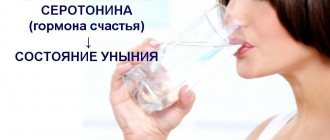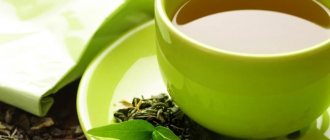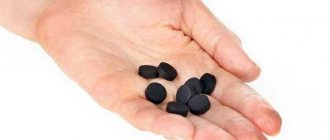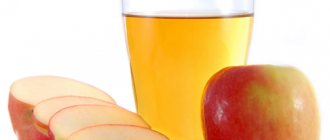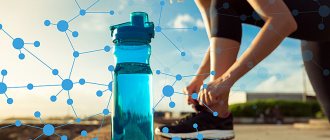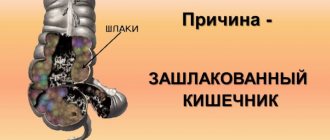Reminder has launched the “Question” section, in which we answer reader questions regarding health, self-development and practical philosophy, based on the latest scientific evidence. You can write to [email protected] with the note “I want to ask.”
In this issue we answer the reader’s question:
How to maintain a balance of proteins, fats and carbohydrates during intermittent fasting? And what drinks besides water can you drink?
Review your basic daily calorie limit
When you lose weight, the hormones that control your energy intake cause your body's overall metabolism to decrease.
Typically, it slows down by 40 calories per day for every pound of weight you lose. To lose weight, you need to burn more calories than you consume. Since you're burning less now than before, you'll have to make some adjustments to your menu.
You can calculate the difference in how your metabolism works by multiplying your weight loss by 40 calories. You will likely need to burn about 100 to 200 calories per day to continue losing weight at the same rate as before.
What can you eat during the “eating window” of intermittent fasting?
Whatever intermittent fasting promises will happen. Yes, blood sugar levels decrease. And yes, you will start losing weight. But it is important to understand that it is not the fact of fasting itself that contributes to this, and it is not fats that will magically begin to be broken down in the first place. Prolonged fasting of an unprepared body is more likely to lead to undesirable consequences than to the desired effect. And uncontrolled consumption of food during the hours when eating is allowed will put an end to the whole idea.
The secret to improving the body's condition and stabilizing insulin levels and other indicators is reducing calories. This is the basis of intermittent fasting. After all, scientific sources do not say that you can eat everything during the “food window”. They also advise eliminating alcohol, fast food, heavy, fatty, and fried foods from your diet. Make breakfast more high in calories and avoid eating flour during dinner. Drink enough fluids and, what is very important, be active, play sports, exercise, walk - to each his own.
Therefore, we can easily apply the usual term “proper nutrition” to ISIS. If you do not eat food during the allowed hours, your total calorie intake will naturally decrease. And an increased period of fasting will also contribute to this.
Keep a food and exercise diary

Source here and below: Pexels
As you approach your ideal weight, you can begin to take a more relaxed approach to your diet and the amount of exercise per week. But in fact, you must be even more vigilant than before.
Be responsible by keeping a food diary or using a calorie counting app. Compare the amount you consume with the amount you expend. Be as honest and accurate as possible.
More details
First, keep in mind that there is no 100% scientific evidence for the health benefits of intermittent fasting. Secondly, it has a lot of contraindications - see our guide to fasting. If you decide to try it, be sure to consult your doctor.
“The more correct name for intermittent fasting is time-restricted eating,” explains nutrition coach Anastasia Prisyazhnaya. Many people confuse this practice with restricting calories or food choices. In fact, you're just taking longer between meals than usual. For example, in a 16/8 fasting pattern, you should not eat for a total of 16 hours. And if you're used to eating three times a day, just try to fit your usual meals into the remaining 8-hour window." Even two meals is enough to consume the WHO recommended 400 grams of fruits or vegetables per day. One apple is almost 200 grams. The balance of BJU (proteins, fats and carbohydrates) during intermittent fasting is regulated according to the same principle as with a regular balanced diet. “More natural fats and whole grains, less saturated fat and added sugar,” advises Dr. Mattson, an author of several studies. More precise recommendations with an online calculator for calculating calories are given by the famous intermittent fasting instructor Christian Pinedo: “I get 35–50% of my calories from carbohydrates, and the rest from fats and proteins in different proportions:
- 40% proteins, 40% carbohydrates, 20% fats;
- 35% protein, 50% carbohydrates, 15% fat;
- 50% protein, 35% carbohydrates, 15% fat.”
In his experiments, all combinations were equally effective for losing weight and maintaining optimal shape. But he still considers the option with a large proportion of proteins more comfortable: “During intermittent fasting, it is important to maintain a high level of protein. Protein creates a natural feeling of fullness, which has a positive effect on how you feel throughout the day.”
Now about the liquid.
There is one strict rule and one recommendation:
1. No calories. The principle of intermittent fasting is to consume no calories at all in the intervals between meals. Therefore, all high-calorie drinks such as milk, alcohol, juices and sweet soda are excluded immediately.
2. Minimal effect on metabolism and stomach condition. Intermittent fasting aims to change metabolism. Drinks such as tea or coffee, in large doses, can affect metabolism, and therefore the effect of intermittent fasting, explains nutritionist Ali Miller. Therefore, it is better to limit their consumption. Moreover, tea on an empty stomach can cause nausea, and coffee can increase “hunger cramps” and increase stomach acidity. Not the best background for abstaining from food. If you cannot live without tea or coffee, brew it as weakly as possible.
The safest drink for maintaining fluid balance between meals is water. “But if in the first days there is a feeling that you are missing something,” says Anastasia Priyazhnaya, “you can support yourself with pieces of ice, a teaspoon of lemon juice, high-quality apple cider vinegar or unsweetened herbal tea.”
Adjust your nutrient ratios
Low-calorie diets are more effective than others, but they can be quite difficult to follow. In addition, often with this type of nutrition the body lacks the necessary substances.
Adjust your diet so that you consume more protein (most of it from lean sources) and fewer carbohydrates. Try eating nuts, lentil soup, chickpeas, whole wheat pasta and vegetables.
Ginseng tea
The immune system
Ginseng has been found to increase the number of immune cells in the blood. For example, in one study, 227 people received either ginseng or a placebo for 12 weeks, followed by a flu vaccine 4 weeks later. The incidence of colds and flu was two-thirds lower in the ginseng group.
It has also been found to reduce inflammation by inhibiting tumor necrosis factor, IL-6, and reduces fatty inflammation.
Mental capacity
A single dose of ginseng has also been shown to reduce the intensity of brain electrical activity (EEG). Excessive EEG activity is harmful to memory and, in general, to the brain.
Is it possible to drink tea and coffee while fasting?
A clean body is the key to longevity, beauty and health. Throughout life, the human body accumulates food debris, decay products and dead cells. A tired body is unable to absorb nutrients, minerals and vitamins.
It is difficult to give up food, it is difficult to overcome the habit of snacking, eating problems and troubles. To make it easier to start practicing absolute and long-term fasts, you can start with fasting days on tea, juices and other drinks.
During unloading, you can drink compotes and teas, and coffee helps dull the feeling of emptiness in the stomach, nausea and dizziness.
This indentation is allowed only for short-term fasting days for the purpose of losing weight. Therapeutic fasting involves complete abstinence from foods and liquids, except water. Thanks to pure filtered or distilled water, the removal of dangerous toxic substances is enhanced, which helps to avoid intoxication. Long-term fasting, lasting three days, a week or longer, follows certain rules that cannot be violated under any circumstances.
Therapeutic fasting inhibits aging
During fasting, autophagy is triggered - one of the main mechanisms in the fight against human aging.
Link(s) to study(s):
- www.ncbi.nlm.nih.gov/pmc/articles/PMC3106288/
- www.ncbi.nlm.nih.gov/pubmed/21106691
During autophagy, the body cleanses itself of intracellular debris. Autophagy may provide protection against several diseases, including cancer and Alzheimer's disease (senile dementia).
Link(s) to study(s):
- www.ncbi.nlm.nih.gov/pubmed/19524509
- www.ncbi.nlm.nih.gov/pubmed/23773064
Therapeutic fasting preserves muscles
One of the worst side effects of calorically optimal nutrition is that the body tends to burn both fat and muscle.
Link(s) to study(s):
- www.ncbi.nlm.nih.gov/pubmed/17075583/
One commentary study found that reducing IGF-1 to optimal levels through short fasting cycles causes less muscle loss than constant optimal caloric feeding. And this is very important, since optimal calorie nutrition, although it prolongs life, makes a person thin. This is a big advantage of fasting over low-calorie eating. But it is worth remembering that this effect occurs only with a short fast.
Link(s) to study(s):
- www.ncbi.nlm.nih.gov/pubmed/ 21410865
In one study, participants ate the same number of calories as before, except for only one large meal in the evening. And they lose more fat but have gains in muscle mass—along with a host of other beneficial effects in health markers
Link(s) to study(s):
- https://ajcn.nutrition.org/content/85/4/981.short
And in this case, you should adhere to the following daily rules:
- Follow an anti-inflammatory dietary strategy: paleo, paleo AIP, keto, epipaleo RX. They are characterized by the presence of the right fats - a structural component of bile, which stimulates the formation of the hormone cholecystokinin. The latter contracts the gallbladder, and bile enters the intestinal lumen.
- Maintain adequate water regime. For gallbladder pathologies, it is critical to take enough water. If you do not comply, the bile will thicken and its outflow will be problematic.
- Increase gastric acidity, it determines the secretion of bile. One effective way is apple cider vinegar and lemon.
- It is worth including beets, artichokes, radishes, asparagus, celery, lemon, lime, grapefruit, cucumbers, carrots, green vegetables, broccoli, kale and seaweed (spirulina and chlorella) in your diet.
- Mandatory use of herbs and spices with a bitter taste: ginger, arugula, turmeric, cilantro, dandelion, cumin, fennel, mint, green onions, parsley.
- Use fermented vegetables in your diet. They contain organic acids, autoenzymes and probiotics that promote healthy digestion.
- Portions of food taken should be small - bile may not be enough for the amount of fat that comes with a large amount of food.
- Eat your largest meal when you are most relaxed. It is then that the parasympathetic nervous system is active, which ensures normal bile drainage.
- Rule out food intolerances.
- Use fiber. It absorbs pathological estrogen metabolites in bile and removes them from the body.
- Go to bed on time. And until 23 o'clock.
- Required supplements: magnesium and lecithin.
Conclusion: before you start the practice of intermittent fasting for gallbladder pathology, you need to carefully work with your diet and regimen, and also compensate for nutritional imbalances.

So, you have decided that you have no contraindications to fasting, and you have selected a dietary strategy that is most comfortable for your body. Now is the time to reap all the benefits of intermittent fasting! And it does not mean a complete absence of food and liquids in the diet, quite the opposite.
Therapeutic fasting protects the brain
A number of studies in rats have shown that reducing IGF-1 to optimal levels through short fasting cycles can increase the growth of new nerve cells in the brain.
Link(s) to study(s):
- www.ncbi.nlm.nih.gov/pubmed/11220789
- https://onlinelibrary.wiley.com/doi/10.1046/j.0022-3042.2001.00747.x/abstract
Short fasting also increases levels of a hormone called neurotrophic factor bdnf. Bdnf deficiency causes depression and various other brain lesions.
Link(s) to study(s):
- www.ncbi.nlm.nih.gov/pubmed/11220789
- www.ncbi.nlm.nih.gov/pubmed/16011467
- www.ncbi.nlm.nih.gov/pmc/articles/PMC151440/
- www.ncbi.nlm.nih.gov/pmc/articles/PMC3022308/
Animal studies have also shown that reducing IGF-1 to optimal levels through short fasting cycles protects against brain damage due to strokes.
Link(s) to study(s):
- www.ncbi.nlm.nih.gov/pmc/articles/PMC2844782/
A study in rats suggests that lowering IGF-1 to optimal levels through short fasting cycles may delay or reduce the onset of Alzheimer's disease.
Link(s) to study(s):
- www.ncbi.nlm.nih.gov/pubmed/17306982
A series of reports described how daily short-term fasting improved symptoms of Alzheimer's disease in 9 out of 10 patients
Link(s) to study(s):
- www.impactaging.com/papers/v6/n9/full/100690.html
Animal studies also suggest that reducing IGF-1 to optimal levels through short fasting cycles may protect against other neurodegenerative diseases, including Parkinson's disease and Huntington's disease
Link(s) to study(s):
- www.ncbi.nlm.nih.gov/pmc/articles/PMC2622429/
- www.ncbi.nlm.nih.gov/pubmed/10398297
Therapeutic fasting prolongs life
One of the most exciting uses of fasting is its ability to increase longevity. Studies on rats have shown that therapeutic fasting extends life expectancy in the same way as constant optimal calorie nutrition
Link(s) to study(s):
- https://geronj.oxfordjournals.org/content/38/1/36.short
- https://www.sciencedirect.com/science/article/pii/S0047637400001093
And in some of these studies, the results were quite impressive. Rats that fasted for a day lived 83% longer the next day!!! than rats that were not hungry at all.
Link(s) to study(s):
- www.karger.com/Article/Abstract/212538
Therapeutic fasting protects against cancer
Therapeutic fasting greatly reduces the risk of cancer and may even defeat some types of cancer.
Link(s) to study(s):
- www.ncbi.nlm.nih.gov/pubmed/3245934
- www.ncbi.nlm.nih.gov/pubmed/22323820
- www.ncbi.nlm.nih.gov/pubmed/16126250
- www.ncbi.nlm.nih.gov/pubmed/11835290
There is also some evidence that reducing IGF-1 to optimal levels using short fasting cycles can significantly reduce various side effects of chemotherapy
Link(s) to study(s):
- www.ncbi.nlm.nih.gov/pubmed/20157582/
Chamomile tea
Chamomile tea causes relaxation in the blood vessels and helps smooth muscle fibers relax - may help prevent spasms and is a sedative and sleep aid.
Chamomile tea also contains flavonoids, one of which is called apigenin - apigenin binds to benzodiazepine receptors in the brain.
A study published in the Journal of Agricultural and Food Chemistry of the American Chemical Society found that drinking chamomile tea was associated with a significant increase in urinary levels of hippurate, a breakdown product of certain plant compounds known as phenolics, some of which have been linked to increased antibacterial activity.
Share link:
- Click to share on Twitter (Opens in new window)
- Click here to share content on Facebook. (Opens in a new window)
Therapeutic fasting changes gene activity
During the period of fasting, due to a deficiency of methionine and carbohydrates, the activity of mTOR kinase is inhibited, and this triggers important cellular repair processes. For example, the removal of intracellular debris is autophagy.
Link(s) to study(s):
- www.ncbi.nlm.nih.gov/pmc/articles/PMC3106288/
The expression of sirt1, sirt2 and sirt3 is activated, which helps prevent cancer.
Link(s) to study(s):
- www.ncbi.nlm.nih.gov/pubmed/24048020
The activity of neurotrophic factors such as bdnf and the glial cell line neurotrophic factor gdnf is enhanced. The activity of these factors helps prevent brain stroke and Alzheimer's disease. The activity of IGF-1 and NF-kb decreases, which also helps prevent cancer. Many other beneficial changes in gene expression occur:
Link(s) to study(s):
- www.ncbi.nlm.nih.gov/pubmed/24048020
- www.ncbi.nlm.nih.gov/pmc/articles/PMC2622429/
How to break a one-day water fast
Break your fast at the appointed time. The correct way out of a one-day fast on water must be done slowly and very carefully, starting food consumption with a small amount. A day after fasting on water, eat half as much as usual. Your digestive system is in low-energy mode and can't handle large amounts of heavy food right now. Instead, eat light foods such as fruits, vegetables and soup. Consumption of water and fruit juices is also very important.
- Remember that after a one-day fast you should not eat or drink much - especially not too quickly. First, eat an apple and drink a glass of water. Then you can eat a small bowl of soup and drink a glass of orange juice.
- Your first meal after fasting should take you 30 minutes to an hour. Eating large amounts of food quickly can cause significant abdominal pain—and it may even be dangerous to your health. Slow down.
Therapeutic fasting suppresses inflammation
Oxidative stress is one of the steps towards aging and many chronic diseases
Link(s) to study(s):
- www.ncbi.nlm.nih.gov/pubmed/15123782
It involves unstable molecules called free radicals that react with other important molecules (such as DNA)
Link(s) to study(s):
- www.hindawi.com/journals/bmri/2014/761264/
Some research suggests that reducing IGF-1 to optimal levels through short fasting cycles may increase the body's resistance to oxidative stress
Link(s) to study(s):
- www.ncbi.nlm.nih.gov/pubmed/17291990/
Additionally, research suggests that reducing IGF-1 to optimal levels through short fasting cycles may help combat systemic inflammation, another important mechanism of human aging.
Link(s) to study(s):
- www.ncbi.nlm.nih.gov/pubmed/17291990/
- www.ncbi.nlm.nih.gov/pubmed/17374948
- www.ncbi.nlm.nih.gov/pubmed/23244540
r
